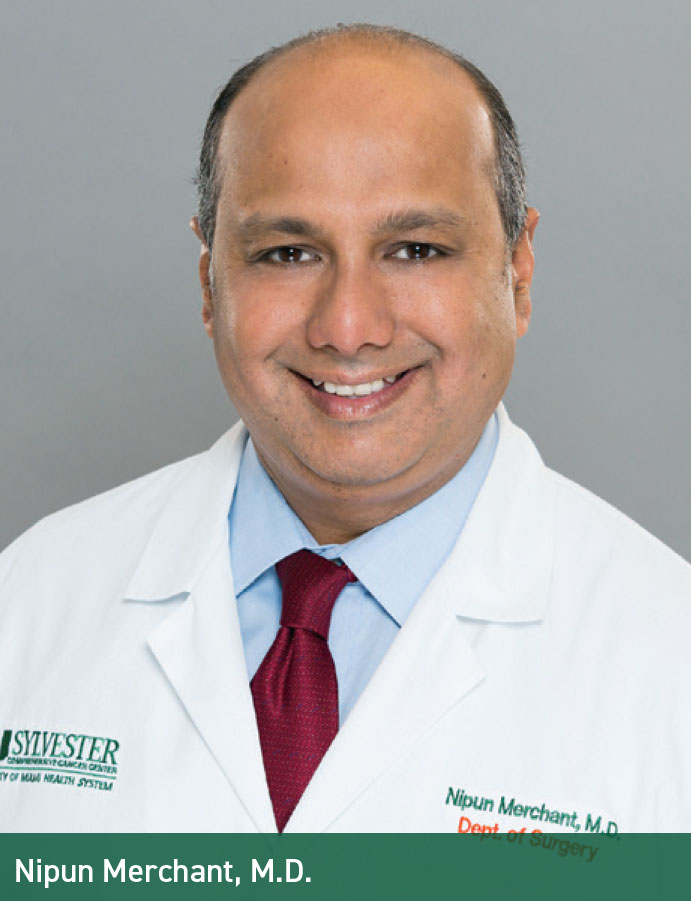Studies will also focus on diverse racial and ethnic populations to learn how epidemiological and environmental factors influence health disparities.

Sylvester Comprehensive Cancer Center at the University of Miami Miller School of Medicine recently established the Sylvester Pancreatic Cancer Research Institute (SPCRI). The new center will support innovative research, increase collaborations between scientists and clinicians, and provide more treatment and clinical trial opportunities for patients.
“The SPCRI will combine Sylvester’s clinical strength with world-class research to discover, develop, and deliver novel personalized treatments to pancreatic cancer patients,” said Stephen D. Nimer, M.D., Sylvester director, executive dean for research at the Miller School, and holder of the Oscar de la Renta Endowed Chair in Cancer Research.
“At Sylvester, we have long been ahead of the curve on linking the science to clinical care,” said surgical oncologist and founding SPCRI director Nipun Merchant, M.D. “We have created a translational bridge, not just from the laboratory to the patient’s bedside, but also taking patients’ tumor samples and clinical information back to the laboratory.”
SPCRI also provides resources to enhance ongoing cancer research and clinical care. Clinicians and researchers are coalescing to enhance collaborations at the University of Miami, as well as nationally and internationally.
The SPCRI goal is to bring clinicians, scientists, patients, advocates, and philanthropists together to help patients, explained Sylvester surgical oncologist Jashodeep Datta, M.D.
The team will study South Florida’s diverse racial and ethnic populations to understand more about how epidemiological and environmental factors influence the disparities in pancreatic cancer susceptibility and outcomes among distinct groups. This will provide ongoing educational opportunities for researchers and new avenues of investigation.
The clinicians and scientists at SPCRI want to better understand why some patients respond well to treatment while others do not. What are the molecular signatures in tumors that make a treatment more effective? Finding these biomarkers will inform care from the first biopsy, giving oncologists enhanced tools to provide the most precise treatments for each patient. In addition, the team will investigate the tumor microenvironment to find vulnerabilities that will give treatments and immune cells better access to tumors.
We also want to better understand the psychosocial needs of patients and their caregivers,” Dr. Merchant said. “Pancreas cancer is one of the most difficult diagnoses. The treatment is long and challenging.
“I’m passionate about the science, but I also see these patients daily,” Dr. Merchant said. “I see how challenging this disease is for patients. We need to drive better science to have a real impact on their care. That is what motivates me every day.”